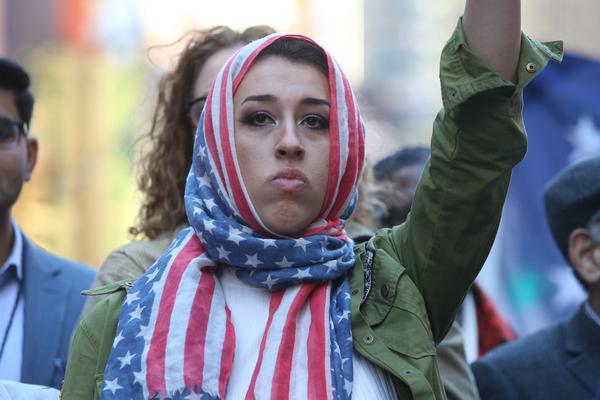In a letter published on Thursday, a group of prominent faith leaders ask President-elect Joe Biden and his transition team to protect religious freedom. Signees include two former Obama administration officials: Melissa Rogers, who served during the Obama administration’s second term as director of the White House Office of Faith-based and Neighborhood Partnerships, and Rabbi David Saperstein, who served as ambassador-at- large for the U.S. Department of State's Office of International Religious Freedom from 2015 to 2017.
Other members of the diverse coalition endorsing the message include Rev. Robyn Henderson-Espinoza, founder of the Activist Theology Project; the New York Times’s Wajahat Ali; Sister Simone Campbell of NETWORK Lobby; author and ELCA pastor Rev. Nadia Bolz-Weber; Dr. Emilie M. Townes of Vanderbilt Divinity School; and Diane Randall, general secretary of the Friends Committee on National Legislation. As of its release, the letter had more than 100 signers.
The letter asks the president-elect to repeal the Muslim travel ban on his first day in office; protect the separation of church and state to preserve religious plurality; work to lower and prosecute hate crimes; and reverse policies undermining LGBTQ rights and safety that the Trump administration put in place. Additionally, signees advocate for making global religious freedom a foreign policy priority, specifically referencing the persecution of Uighur Muslims in China.
“President Trump and some of his appointees have sowed fear and division among religious communities,” says the letter. “The Biden administration must act quickly to correct these actions and reclaim a positive vision of religious freedom that protects all Americans.”
Under the Trump administration, hate crimes against religious groups have risen. According to the FBI’s annual hate crimes report, released earlier this week, hate crimes in 2019 rose to the highest rates in a decade; it was the third consecutive year with more than 7,000 hate crimes reported, according to NPR. Twenty percent of all reported hate crimes were motivated by the offenders' religious bias; of that number, 60 percent were anti-Jewish, and about 13 percent were anti-Muslim. Notably, there was a 14-percent rise in hate crime reports against Jewish Americans over the previous year.
During his presidency, Trump has repeatedly cited religion and religious freedom as basis to roll back reproductive health care and rights for marginalized communities, particularly LGBTQ people. For example, Trump inserted a “religious exemption” into an Obama-era provision surrounding federal contractors’ hiring practices; Trump's Labor Department later buoyed that policy by allowing faith-based contractors to make hiring decisions that would discriminate against LGBTQ workers. Biden has committed to overturning those policies.
The letter specifically references the Religious Freedom Restoration Act (RFRA), originally passed in 1993, and urges the administration to “clarify the Act so that the statute is not misused.” In the Supreme Court's 2014 ruling on Burwell v. Hobby Lobby Stores, Inc., RFRA was used to provide a religious exemption for workplace-provided contraception under the Affordable Care Act, the health care provision championed by the Obama administration. During her time as a senator, Vice President-elect Kamala Harris co-sponsored a bill to prevent RFRA from being used to justify discrimination.
“We've heard a lot during the past four years of this distorted, ‘Trump’ version of religious freedom, which is really about privileging his religious base, but I'm excited about what defending religious freedom looks like for real, in our country and abroad,” said Guthrie Graves-Fitzsimmons, a fellow with the Faith and Progressive Policy Initiative at the Center for American Progress. The Center for American Progress partnered with other groups including Americans United for the Separation of Church and State, Secular Democrats of America, and Interfaith Alliance Foundation to pull the letter together.
Graves-Fitzsimmons said he was impressed by the speed at which faith leaders signed on to the letter, which he saw as evidence that these issues are valued across a wide spectrum.
“The kind of distorted Christian nationalism is controversial,” Graves-Fitzsimmons said. “But defending the rights of religious minorities, religious freedom abroad — that shouldn't be controversial.”
Got something to say about what you're reading? We value your feedback!







